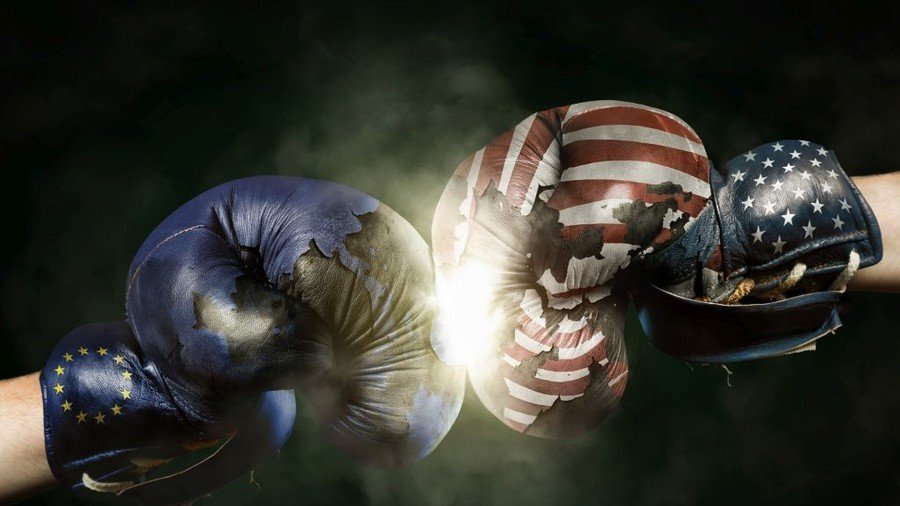No volunteers: EU countries bow to US pressure over alternative payment channel for Iran

Plans by Brussels to create a special payment channel to continue doing business with Iran and bypass US economic sanctions against the country, are now in tatters, as no EU country has agreed to support the idea.
All the members of the 28-nation bloc are reportedly scared by the punitive measures that Washington may potentially introduce against them for such an act of disobedience.
Earlier, EU officials proposed creating a clearing house, or a special purpose vehicle (SPV), to eliminate the bloc’s dependence on the US and the Society for Worldwide Interbank Financial Telecommunication (SWIFT) which currently provides high-value cross-border transfers for members across the world.
The decision was prompted by US sanctions imposed on Iran and anyone doing business with the country.
“No one has come forward at this stage. If we don’t have a host country, we have a very big problem. So much is riding on this that some way will need [to be found] for someone to host this. There is a lot of nervousness about what hosting an SPV means,” an EU diplomat told Reuters.
So far, France and Germany have ruled themselves out as SPV hosts. At the same time, the EU major powers are reportedly planning to put more pressure on Luxembourg and Belgium to host the headquarters for the SPV after Austria declined a request to manage the project. Both Belgium and Luxembourg have reportedly dropped a hint of doubt over the issue.
“Austria has indeed refused. It’s not dead, but it’s not going in the right direction. We are going to try again with Luxembourg, but we’re under no illusions,” another diplomat told the agency.
Earlier this week, European Justice Commissioner Vera Jourova pledged to find an effective solution, saying that technical work on creating the mechanism to allow EU trade with Iran continued.
“We Europeans cannot accept that a foreign power, not even our closest friend and ally, takes decisions over our legitimate trade with another country,” she told the European Parliament in Strasbourg, stressing that the bloc would not be cowed by probable US penalties.
Washington cannot dictate who Europeans should and shouldn't trade with - Belgian PM https://t.co/m7feTP2Ht2
— RT (@RT_com) September 26, 2018
Shortly after President Donald Trump pulled the US out of the Iran nuclear deal, signed between Tehran and major world powers, leaders of European states activated legislation banning the bloc’s companies from complying with US sanctions against the Islamic Republic.
However, the measure failed to prevent European business giants, including Total, Volkswagen, Daimler, Peugeot, Renault and Siemens from withdrawing from the country. European multinationals are much more concerned about losing the US market than the possible fines they could face from Brussels for leaving Iran.
For more stories on economy & finance visit RT's business section














